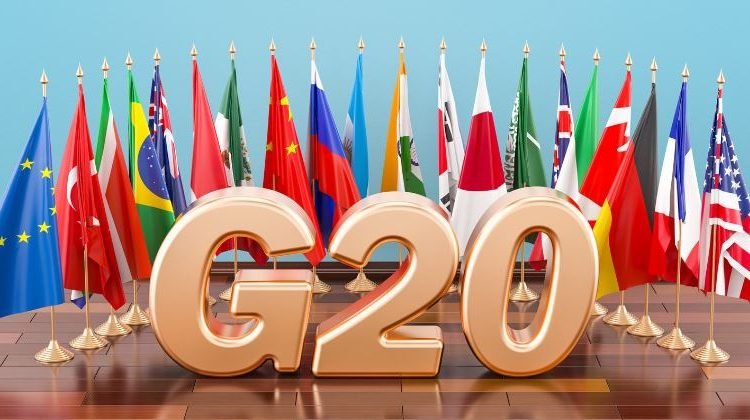A coalition of the 19 most powerful economies in the world, plus the EU, comprising 85% of global GDP, 75% of global commerce, and more than two-thirds of the world’s population, formed the G20 initiative in 1999. The international community was disappointed with the G7 countries’ inability to address the world’s economic issues, which led to the formation of the G20. The idea spread that conversations to find answers to these problems should include middle-income nations and those with systemic economic influence. Since then, the G20 has been instrumental in advancing international trade by serving as a multilateral, non-hierarchical organization that addresses issues affecting the expansion of the global economy, such as those relating to finance, trade, infrastructure, and investment, energy, employment, the fight against corruption, development, agriculture, technology, and the digital economy.
In December 2022, India assumed the G20 presidency, with a one-year mandate to steer debates and set the global economic agenda. One Earth, One Family, One Future is the slogan for India’s G20 presidency, which echoes the traditional Vasudhaiva Kutumbakam philosophy. Prime Minister Modi underlined India’s commitment to inclusive, ambitious, definite, and action-oriented policies during a meeting with foreign leaders in Bali. Without strong messages of “peace and harmony,” he added, future generations will not be able to take advantage of economic development or technological advancement. In light of the current international political and economic environment, India’s G20 chairmanship is particularly relevant. Global economies have been affected by the COVID-19 epidemic, and the G20 is essential in arranging a coordinated international response. In order to ensure a coordinated international response to the epidemic, including vaccine distribution and economic recovery initiatives, India can leverage its presidency. India may also take the lead by concentrating on crucial topics like climate change, digital transformation, and sustainable growth. India has the chance to spearhead advancement on these fronts, which are crucial for the long-term stability and health of the global economy.
The G20 presidency of India gives the nation a significant platform to influence the global economic agenda and advance its interests internationally. India has the chance to show its leadership and dedication to international cooperation and partnership. India has the chance to affect the conversations and outcomes of the G20 meeting because it is hosting it. With the current economic and political atmosphere around the world, India’s presidency is extremely significant. Global economies have been affected by the COVID-19 epidemic, and the G20 is essential in arranging a coordinated international response. In order to ensure a coordinated international response to the epidemic, including vaccine distribution and economic recovery initiatives, India can leverage its presidency. Since that India has one of the world’s fastest-growing economies, its role as a global leader is becoming more and more crucial. India’s influence on the world economy is growing as the country develops. India’s involvement in the G20 is a reflection of its expanding influence and commitment to taking the initiative in influencing the direction of the world’s economic agenda. India has a platform through the G20 to advance its goals and influence the global economic agenda in line with its top priorities. The administration must give top priority to topics that are crucial for the long-term health and stability of the global economy.
Finally, the government should seize this chance to highlight India’s leadership and dedication to advancing international cooperation and collaboration and realising a common future vision.
#G20Initiative #GlobalEconomy #InternationalCooperation #InclusiveGrowth #SustainableDevelopment #ClimateAction #DigitalTransformation #COVID19Response #Leadership #GlobalCooperation #PeaceAndHarmony #IndiaG20Presidency




